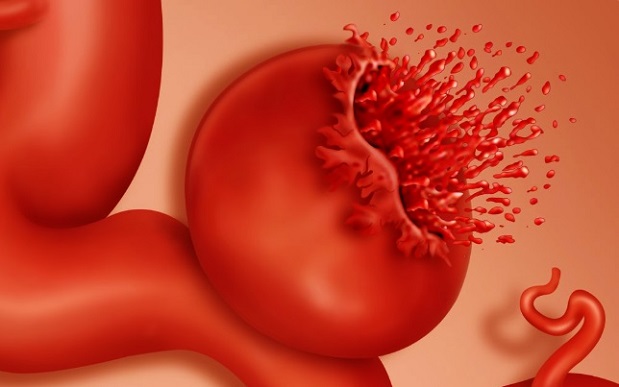Nikhil Prasad Fact checked by:Thailand Medical News Team Aug 06, 2025 6 months, 1 week, 23 hours, 55 minutes ago
Medical News: Doctors Warn of Increased Vascular Risks Triggered by Coronavirus Inflammation
A team of Italian researchers from the Department of Surgery at Sapienza University in Rome, the Department of Vascular Surgery at University of Rome Sapienza, and the IRCCS San Matteo in Pavia has uncovered a troubling connection between moderate to severe COVID-19 infections and the sudden enlargement or rupture of abdominal aortic aneurysms (AAA). Their findings point to intense inflammation and immune system changes caused by the virus as major contributors to these deadly vascular events.
 COVID-19 Infection Linked to Sudden Rupture of Aortic Aneurysms
COVID-19 Infection Linked to Sudden Rupture of Aortic Aneurysms
Aortic aneurysms, which are balloon-like bulges in the wall of the aorta, often develop silently. They can be life-threatening if they expand too quickly or burst. In this
Medical News report, it was revealed that COVID-19 can act as a trigger for rapid aneurysm progression and rupture, especially in people who already have small, previously stable aneurysms.
The Role of Inflammation and Immune Disruption
The study highlights several COVID-19-induced biological mechanisms that may damage the aortic wall. One of the main culprits is the so-called “cytokine storm,” a state of excessive inflammation where the body’s immune system goes into overdrive. This leads to tissue damage and the breakdown of critical structural proteins like elastin and collagen within the blood vessel wall.
Additionally, COVID-19 hijacks the angiotensin-converting enzyme 2 (ACE2) for cell entry. This interferes with the body’s ability to regulate blood pressure and inflammation. The virus also triggers hypoxemia, or low oxygen levels, due to lung damage, which worsens tissue breakdown in the aorta.
Steroids and Blood Clots Add to the Problem
While steroids are commonly used to reduce inflammation in COVID-19, they may also reduce the body’s ability to repair and maintain vascular tissue. This raises concerns about their long-term effects on the aorta. Meanwhile, COVID-19 increases the risk of blood clots, including inside the aorta. These clots (called intraluminal thrombi) may not only restrict blood flow but also weaken the vessel wall, making rupture more likely.
The study also found that smooth muscle cells in the aortic wall—a key part of vessel strength—are prone to death during COVID-19 infection. This adds to the wall’s fragility, increasing the risk of catastrophic failure.
More Emergency Surgeries and a Shift Toward Endovascular Repairs
The pandemic disrupted normal vascular care, delaying routine screenings and aneurysm surgeries. Many patients presented only after their aneurysms had ruptured. In response, doctors increasingly turned to less invasive procedures such as endovascular aneurysm repair (EVAR), which avoids the need for full open surgery and can often be done under local anesthesia. During the pandemic, more than 80% of AAA repairs were done this way, up
from just 40-45% in earlier years.
Why This Research Matters
These findings stress the importance of monitoring patients with known aneurysms closely during and after COVID-19 infection. What makes this situation particularly dangerous is that many of the damaging processes happen silently, until it is too late. The researchers urge physicians to consider early surgical intervention and maintain regular follow-ups, especially in high-risk groups.
The study findings were published in the peer reviewed: Current Problems in Cardiology
https://www.sciencedirect.com/science/article/pii/S0146280625001719
For the latest COVID-19 News, keep on logging to Thailand
Medical News.
Read Also:
https://www.thailandmedical.news/news/doctors-warn-that-covid-19-could-possibly-cause-unruptured-sinus-of-valsalva-aneurysm
https://www.thailandmedical.news/news/case-study-highlights-that-covid-19-can-cause-massive-aortic-rupture
https://www.thailandmedical.news/news/covid-19-causes-coronary-artery-lesions-and-plaque-ruptures-in-coronary-artery-disease-patients
